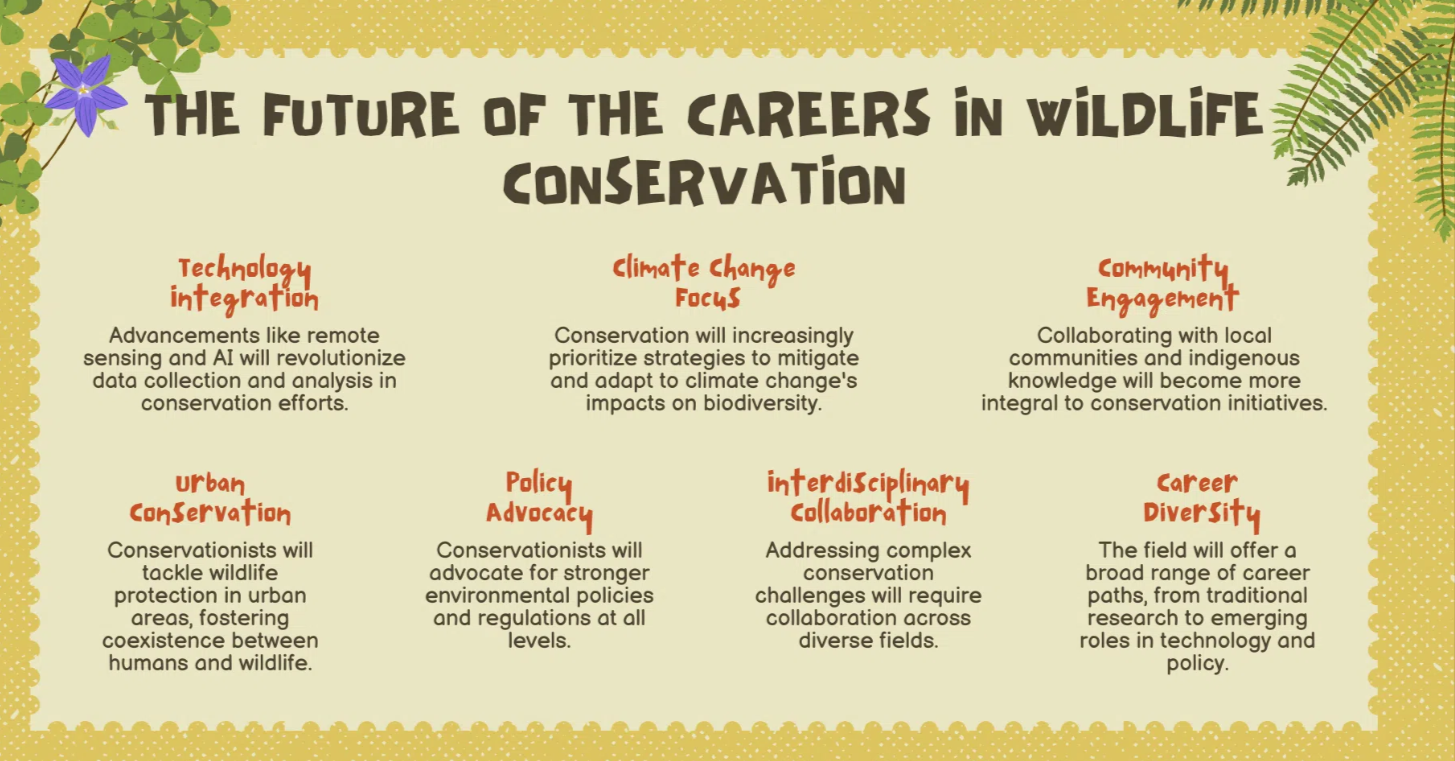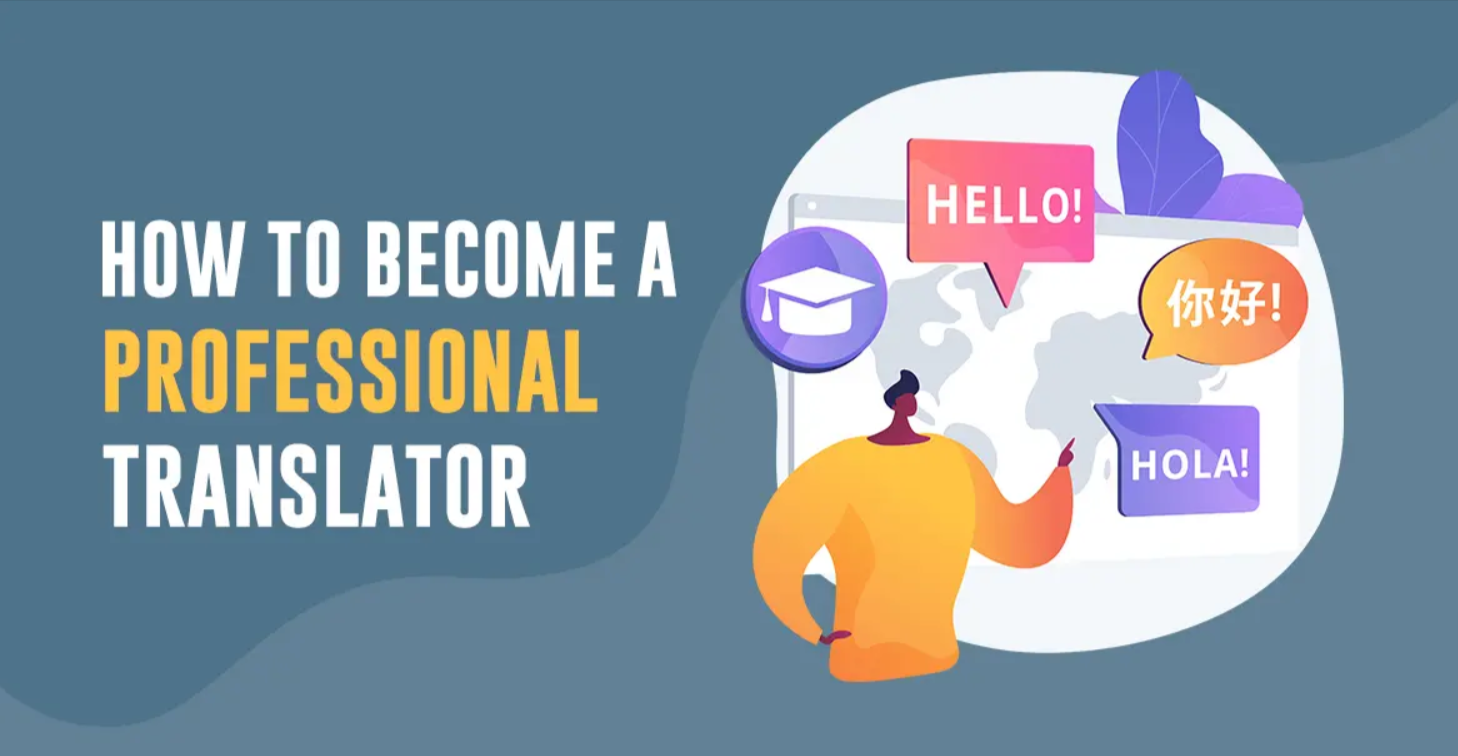How to Start a Career in Wildlife Conservation

The work of wildlife conservation is vast and rewarding, but an immensely important career aimed at saving threatened species, habitats, and biodiversity for future generations. It includes everything from science to advocacy and adopts a very practical approach to maintaining a steady equilibrium in the environment which is challenged by ecological threats ranging from habitat loss, climate change and poaching.
If you have a passion for nature, wildlife, and the environment, then a career in wildlife conservation is an opportunity for everyone to get involved and make a difference. However, entering this field requires hard work, a good level of academic training, and appropriate experience. In this guide, we will take you through the basics of starting your career in wildlife conservation.
What is Wildlife Conservation
Wildlife conservation including animals, plant species and conserving human habit by managing the ecosystems. Wildlife conservation is the study of wildlife and the promotion of measures to protect endangered species, more generally biodiversity, and eco-systems.
Wildlife conservationists collaborate with a range of organizations including governments, non-governmental organizations, zoos, research institutions, and environmental consultancies. They can work it if they have a research job, and the role can be a variety of matters, from education and advocacy to fieldwork and policy-making.
Incentives for Working in Wildlife Conservation
It might be a career for you, even if you are not an animal lover the benefits of wildlife conservation career are numerous, personally and professionally. So here are reasons to consider this intentional journey:
- Section Endangered species save: Save animals and plants at risk of extinction
- Contribute to Protecting Biodiversity & a Healthy Ecosystem:
- Work in various locations across the globe, such as national parks and rainforests
- Real influence on the world, the future generations.
- Job Security: Research, Education, Fieldwork, or Policy Advocacy Jobs
Core Competencies of a Professional Wildlife Conservationist
A successful career in Wildlife conservation is science, skill and love for the environment all combined together4. You would want the following skills listed here —
- Research abilities: Field research, collection of data, statistical analysis
- Communication skills: communicate research findings and advocate conservation policies
- Addressing problematic eco solutions
- Physical Stamina: Many fieldwork activities are quite physically demanding and held in challenging environments.
- Collaboration: Collaborating with scientists, the government and local communities
- Leader: Headlining conservation projects and drawing teams to produce results.
How To Get Into Wildlife Conservation And Find The Right Educational Pathways
While passion is key, having the right academic background can give you a considerable edge when applying for a job in wildlife conservation. Here’s how to get started:
Earn a Required Bachelor’s Degree
The very first step is to obtain a degree pertaining to wildlife conservation. By disciplines that we saw the most of were:
- Environmental Science
- Zoology
- Biology
- Ecology
- Wildlife Management
- Forestry
Bachelor courses train you for biological research, conservation methods and ecology of plants and animals. You will also informed about wildlife biology, habitat management, and environmental policy.
Consider Advanced Studies
A master's or doctoral degree may be beneficial depending on the field or type of leadership you seek. Postgraduate studies: allows us to do research & to specialize (ie. on endangered species, on habitat restoration).
Take up Online Courses and Certifications
Refine Your Skills: With these short programs and certifications, you can refine your skills and take you a step further in learning the recent ways in conservation. Some popular options include:
Specialisation on: Coursera (Conservation Biology)
- Wildlife conservation and management
- GIS in service of Environmental Stewardship
- How to Get Involved with Practical Work in Wildlife Conservation
Nothing can replace the experience of being there when it comes to wildlife conservation. So, where can you practically get your hands on it?
Volunteer Work
Volunteering from conservation organizations is the king here, the best way to be in contact with the real-world experience. Volunteer with nonprofits, wildlife rehabilitation centers, and environmental groups to find many potential positions.
Internships
Look for internships in the government, research, NGOs etc. Internships provide an opportunity to work with experts in the field, where you can gain hands-on experience in data collection, habitat restoration, and species monitoring.
Field Research
This is what you can do during your studies to upgrade your theoretical knowledge to the next level: get involved in a field research frame project. This might involve monitoring local wildlife, habitat assessments and conservation surveys.
Conservation Projects Abroad
Also, due to many international conservation programs, you can collaborate with some organizations for global wildlife initiatives as well. And that not only broadens your mind about international conservation issues but also makes your CV richer.
Over the years, wildlife conservation has bagged a lot of job prospects and the term wildlife conservation means the protection of vegetation and animals.
There is a lot of different career paths in wildlife conservation you can take once you have the education and experience in the field of wildlife conservation. Here are some of the main roles you will find:
Top Career Opportunities in Wildlife Conservation
Wildlife Biologist
Wildlife biologists may study animals throughout the world, however many specialize in one species or group of species and may focus on behavioral, genetic, habitat, or ecosystem studies regarding their organisms of interest. A lot of conservation policies and protection of habitats derive from research out of the Lab of Ornithology.
Qualifications: Qualitative, quantitative and mixed method data analysis, skills in the field
Conservation Scientist
Management plans designed by conservation scientists protect natural resources, which informs sustainable decisions by governments, landholders and organizations.
Potential skills you might use: Science, environmental management, and policy analysis
Park Ranger
Park ranger — one of their biggest duties is to safeguard the wildlife and educate visitors about this national park ecosystem. They patrol through parks, enforce regulations and offer educational programs.
Skills: Selection, communication, education, law enforcement
Ecologist
Examples include ecologists who explore ecosystems, and how organisms fit into them, and their relations to each other and their environment. They are helpful in checking the damage done to natural habitats due to human-caused activities and suggesting actions to recuperate it.
Areas of Expertise: Research methodologies, environmental (low-impact) development, agroforestry
Wildlife Rehabilitator
Wildlife rehabilitators rehabilitate sick or orphaned animals. They restore them to good health and then release them back to the wild when they are capable.
Specialized skills: animal care, veterinary skills, patience.
Environmental Educator
Wildlife Programs Environmental educators create programs that educate correspondents and the community on wildlife and the sustainability of wildlife, along with the need for the conservation and protection of ecosystems.
Important Skills: Public speaking and creativity in creating educational programs
Policy Analyst
Environmental policy analysts are engaged with governments and NGOs to formulate, measure, and advocate biodiversity policy.
Pleadership School PhD (Policy Development Research and Advocation)
Wildlife Career Guide: How to Advance in this Career Path
Once you are in the field, here are some ways you can take your wildlife conservation career to the next level:
- Continuing education: Attend classes, workshops, and conferences to stay current on scientific research, conservation needs, and environmental policy.
- Networking: Attend conservation associations and industry conferences to network with other professionals.
- Page Funding Work: For those doing the scientific work, getting a paper out in the right journals can raise your profile.
- So do: Pick your weight and specialty—for example, marine conservation, climate change research, habitat restoration, etc.
- Accept Leadership Roles: After gaining sufficient experience, start accepting leadership positions such as leading teams, projects, or even an entire department in conservation organizations.
Challenges in Wildlife Conservation
It can be fulfilling to work in wildlife conservation, but also to face some unprecedented challenges:
- Insufficient funding: Conservation jobs are frequently poorly funded, which can lead to struggles with jobs and resources
- Field Locales – A lot of fieldwork requires living and working in remote places for extended time.
- Emotional Toll: Seeing habitat destruction and the endangerment of species can weigh heavily on our hearts.
- Other elements of fieldwork include long hours outside, which can be rough on your body.
Having that knowledge of the challenges could help you mentally and physically prepare for a career within this area.
Final Thoughts
While wildlife conservation is much more than following your passion for nature, it can an incredibly fulfilling way to devote your career to the environment and the future. However, if you have the passion to protect biodiversity, the right education and hands-on experience, you can turn your passion into a career protecting the genetic resources upon which all human organisms rely for our existence!
You can save wildlife — and earn a decent salary while doing it — in any number of ways with the right education and experience — field work, policy work, or outreach and education for example.



